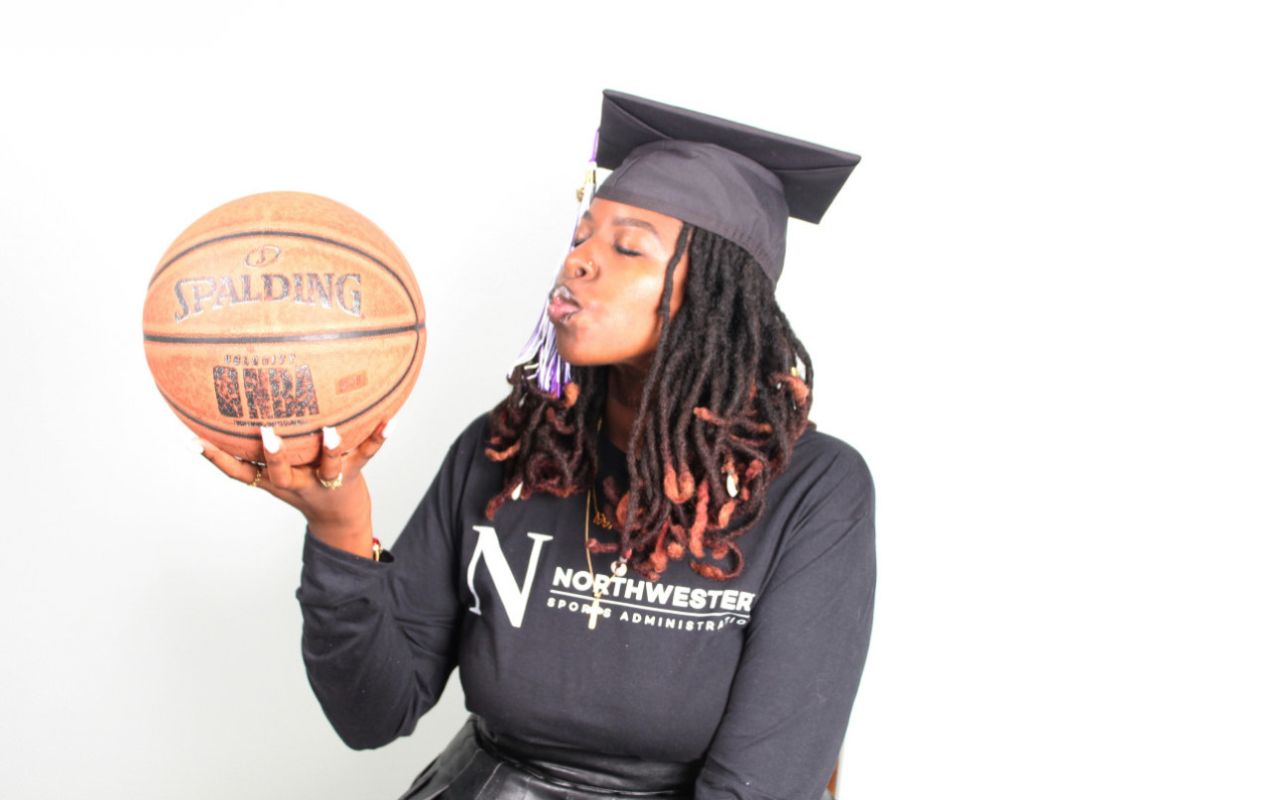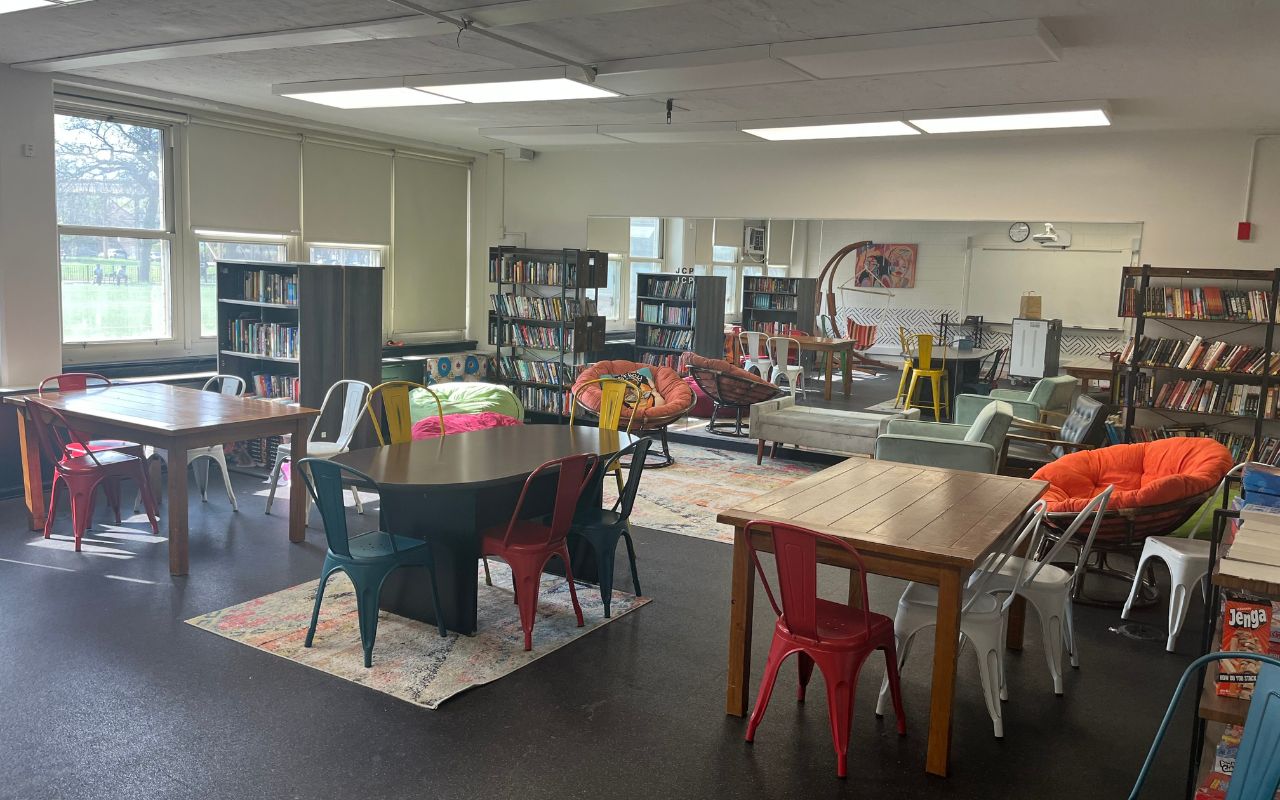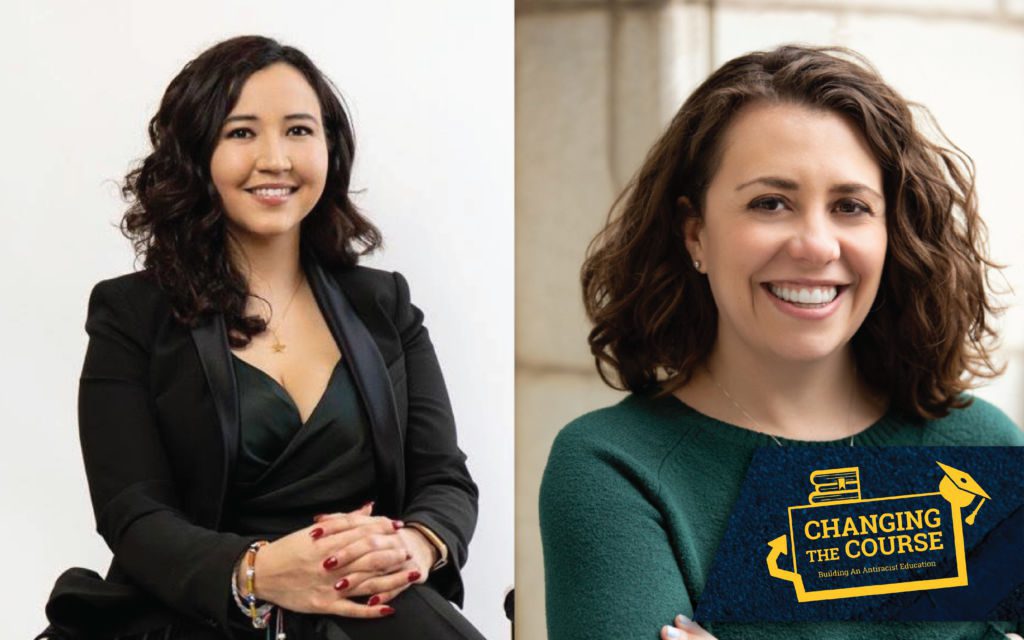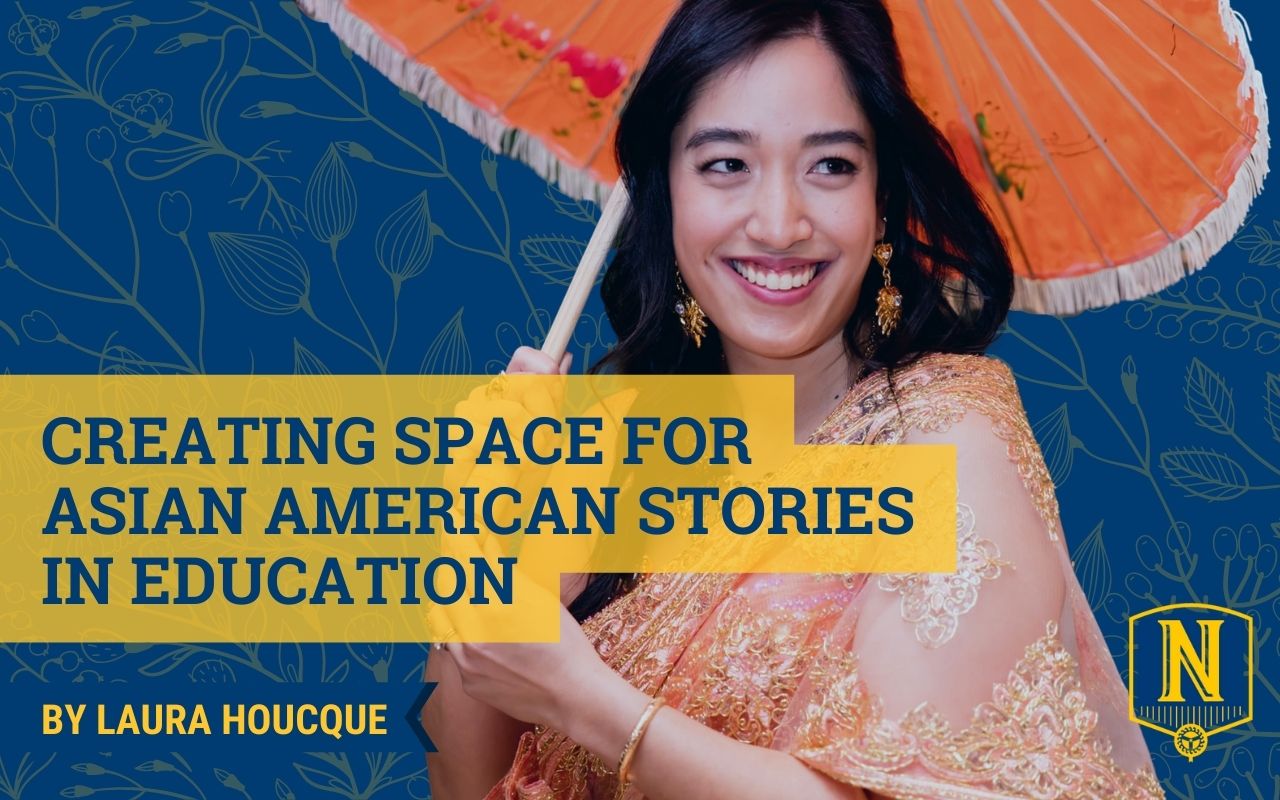
BY LAURA HOUCQUE, College Counselor, Rauner College Prep
I am the daughter of Cambodian Genocide survivors. It has taken me many years to feel proud of that part of my identity rather than to associate it with shame. My family’s trauma made me feel like a burden. My complicated upbringing in France and America erased my Cambodian identity, including my original family name of OUK.
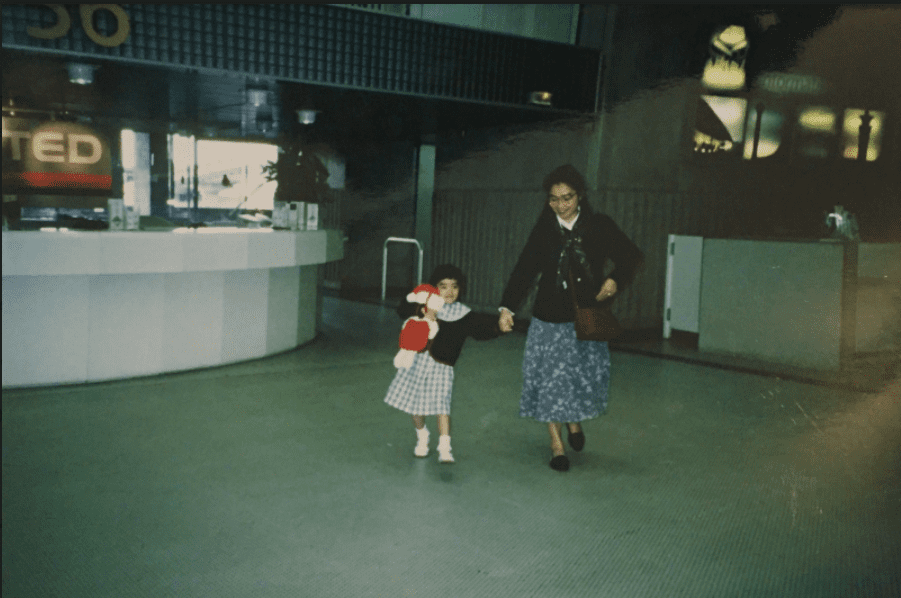
Laura_Photo2
Laura arriving in the U.S. for the first time with her mom at the Chicago O'Hare Airport, 1994. This came after her family's time in France.
I grew up normalizing my family’s story of surviving the Khmer Rouge Genocide of Cambodia from 1975 to 1979, when an estimated 1.7 million Cambodians were killed by Pol Pot’s regime. The genocide displaced survivors all over the world, from Australia to France to America. With the displacement came the unprocessed trauma that survivors passed down to their children through intergenerational trauma.
My childhood experiences led me to my career choice as an educator. Between the absence of Asian American history in school and the inability to learn about my own family’s history at home due to the trauma, I struggled to ground myself in my identity at a young age. I don’t remember learning much about Asian historical figures or about Southeast Asian refugees, like my own family, in school. What I do remember is feeling a lack of pride in my heritage.
That lack of pride made its way into my teaching career and eventually became a motivator for the advocacy work I do today. The reality of Asian American teachers making up less than 2% of teachers in America, despite the growing rates of Asian American students across the country, influenced my own work experiences. In my nearly 10 years of teaching, I have served in schools with predominantly Black and Latinx student bodies while being one of the few Asian American teachers on staff. Several interactions with colleagues and students, while often with pure intentions, heightened my internal fear of not belonging. I carried this fear with me as I struggled to find my own voice as a teacher during my first few years.
In more recent years, I’ve shared my personal story when the opportunity arises to continue debunking the “Model Minority Myth” and the “Perpetual Foreigner” stereotype. Re-learning and learning accurate information about the diverse AAPI community has helped me better understand who I am and how I can contribute to our community. I’ve been empowered to find my voice and pride through advocacy and raising awareness about our often misunderstood, underrepresented AAPI community. If it’s not us, then who?
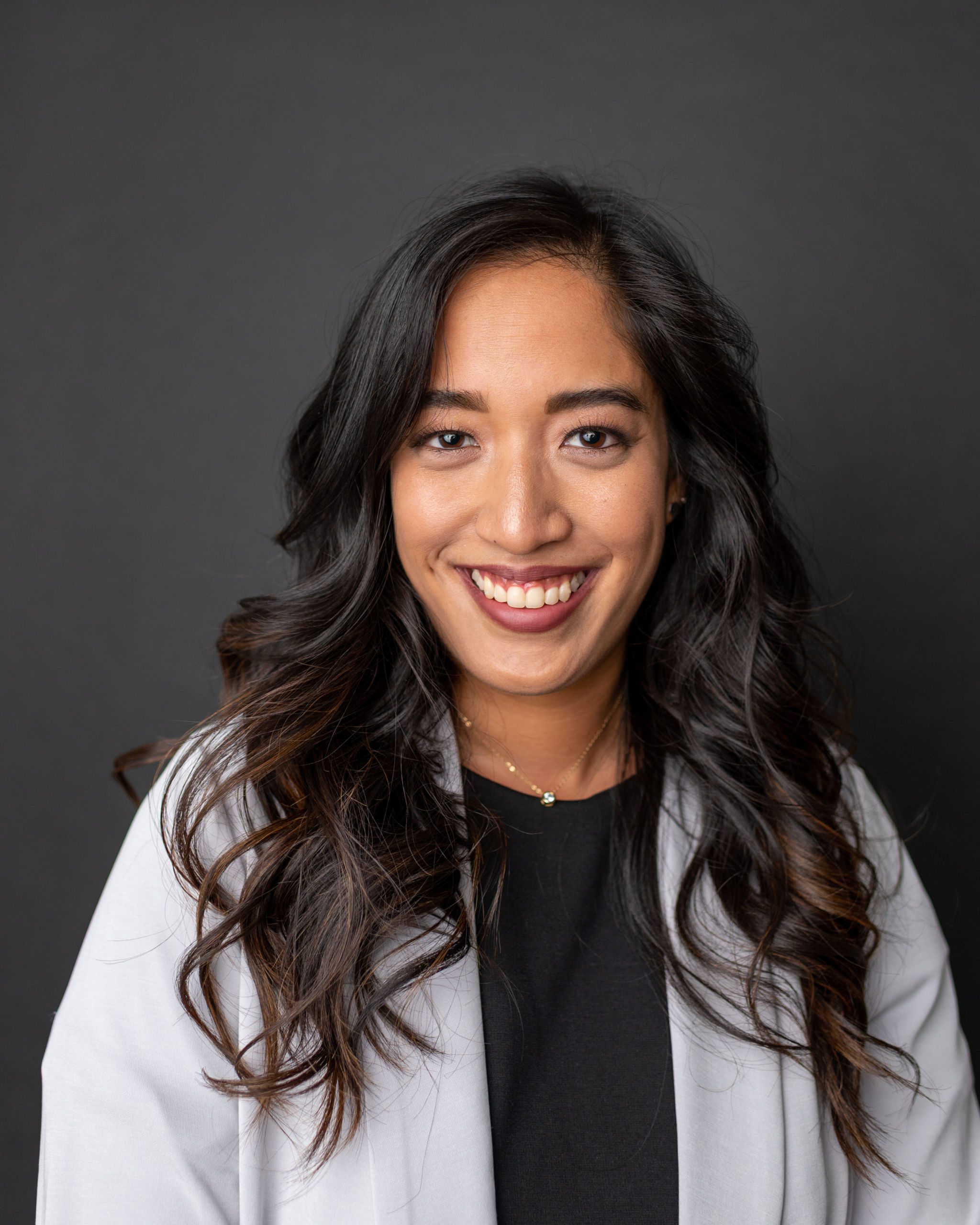
LauraHP-22 2
Laura Houcque, college counselor at Rauner College Prep
One of the biggest ways I found my voice and pride through advocacy was serving on the steering committee for the Teaching Equitable Asian American Community History (TEAACH) Act that was signed into law July 2021. The TEAACH Act amended the Illinois School code to ensure that every public elementary and high school student in Illinois learns about the contributions of Asian Americans to the economic, cultural, social, and political development of the United States. The passing of the TEAACH Act led Illinois to become the first state in the nation to require Asian American history to be taught in public schools starting in the 2022-2023 school year. New Jersey also recently passed a similar law while half a dozen states have ignited similar pushes for curricula that are inclusive of Asian Americans and Pacific Islanders.
When I think back to when the TEAACH Act was signed into law, I remember feeling overwhelmed with so many emotions, especially with excitement and relief. I felt excited to be part of a momentous movement that will reshape how students are taught about the fastest growing racial group in the state of Illinois and in Chicago. I felt relieved knowing that there will be actionable steps to counter the invisibility that too many Asian Americans have experienced.
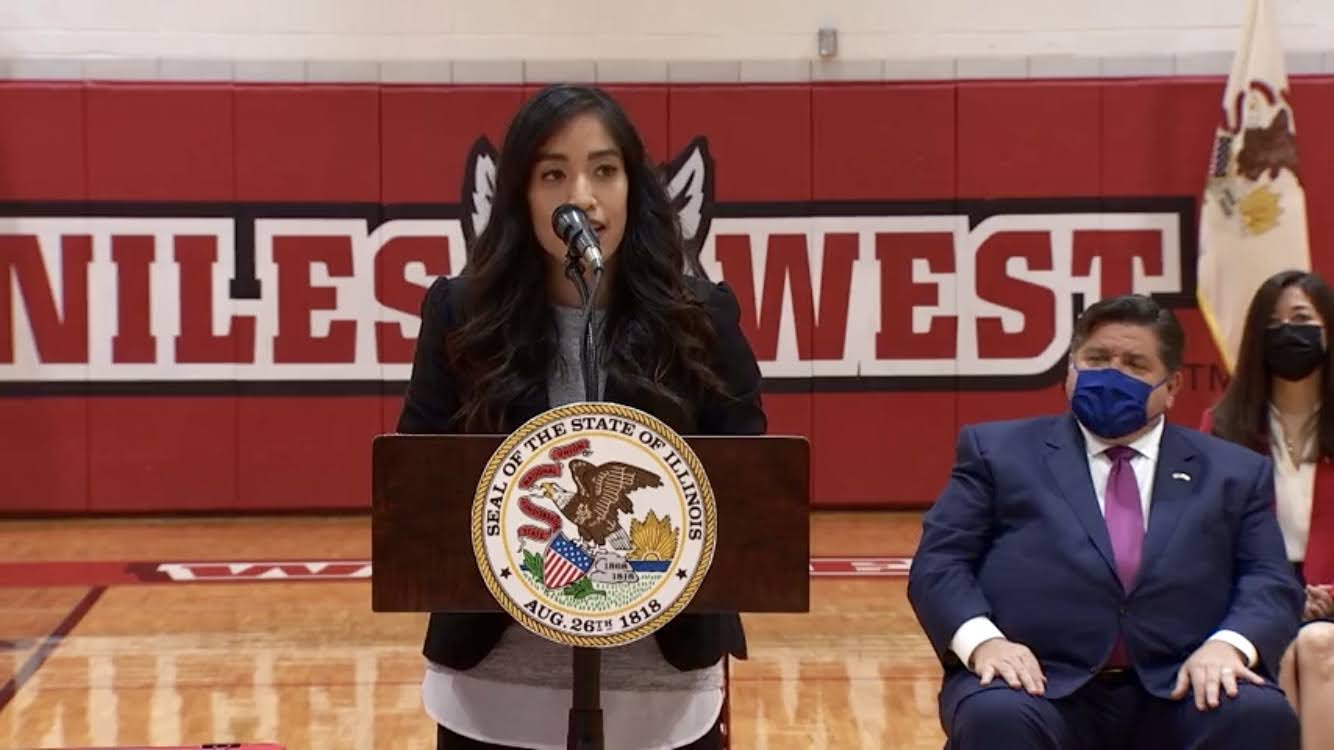
Laura_Photo6
Laura speaking at the signing ceremony for the TEAACH Act, 2021.
Since the bill was signed into law last summer, I have been involved with the implementation of the bill from creating curricular resources to facilitating free professional development workshops for Illinois educators. The TEAACH Act will not only ensure that stories and experiences of the Asian American community are accurately reflected in the curriculum, but it will also provide cross-cultural education for students of all backgrounds.
As educators, it is our responsibility to seek out information and knowledge about different histories and stories of our country to make sure all of our students feel seen and heard. This is why I continuously try to find ways to proactively advocate for the empowerment of AAPI voices in various spaces. And it’s why the most memorable moments of my teaching career involved opportunities where I showed my students of different racial and cultural backgrounds how interconnected we all are.
Navigating my family’s unprocessed trauma has enabled me to redefine my identity as a daughter of Cambodian Genocide survivors. I’ve been able to channel my healing emotions to empower the Southeast Asian community in as many ways as possible while advocating for the TEAACH Act. After too many years of keeping my family’s journey in the shadows, it’s an honor to now shine the light on their stories of resilience.
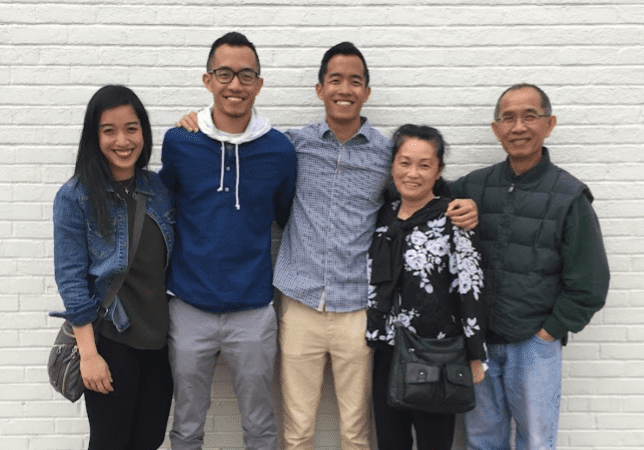
Laura_Photo3
Laura (on the left) with her younger twin brothers, her mother, and her father.
The trauma inflicted upon our families should not be the primary identity marker that defines our existence. I hope to continue working on building better understanding and empathy within our communities.
It’s time that we create space for the vibrant and dynamic stories of Asian Americans in our shared understanding of the history and culture of the United States.
Links to learn more:
- TEAACH Act Free Curriculum & Workshops
- Yale University’s Cambodian Genocide Program & Database
- Research study on intergenerational trauma for the children of Cambodian Genocide survivors
- Research on the needs of the AAPI community in education
- More on the model minority myth
- More on the perpetual foreigner stereotype



